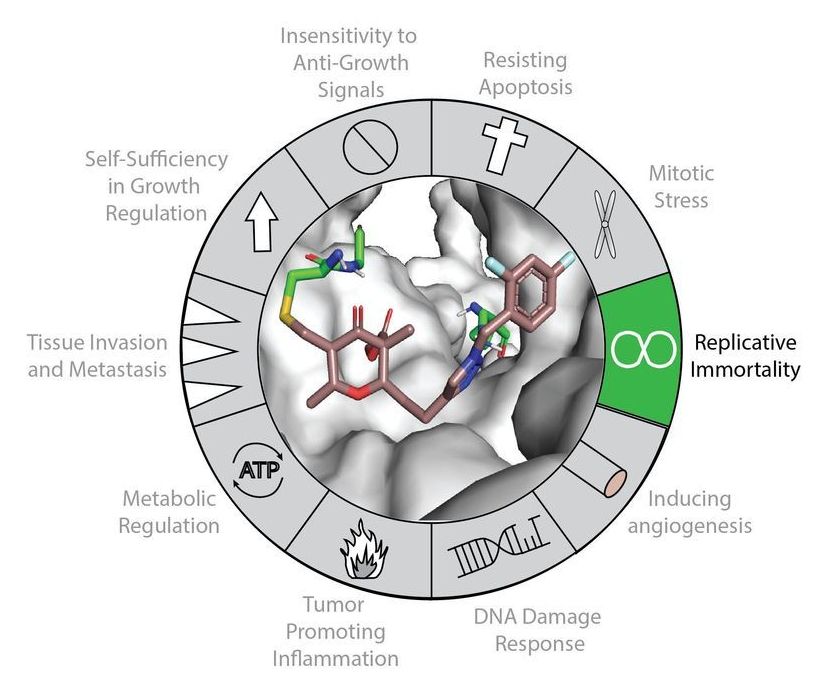One of the hallmarks of cancer is cell immortality. A Northwestern University organic chemist and his team now have developed a promising molecular tool that targets and inhibits one of cell immortality’s underlying gears: the enzyme telomerase.
This enzyme is found overexpressed in approximately 90% of human cancer cells and has become an important subject of study for cancer researchers. Normal cells have the gene for telomerase, but it typically is not expressed.
“Telomerase is the primary enzyme that allows cancer cells to live forever,” said Karl A. Scheidt, who led the research. “We want to short-circuit this immortality. Now we have designed a first-of-its-kind small molecule that irreversibly binds to telomerase, shutting down its activity. This mechanism offers a new pathway for treating cancer and understanding cellular aging.”
